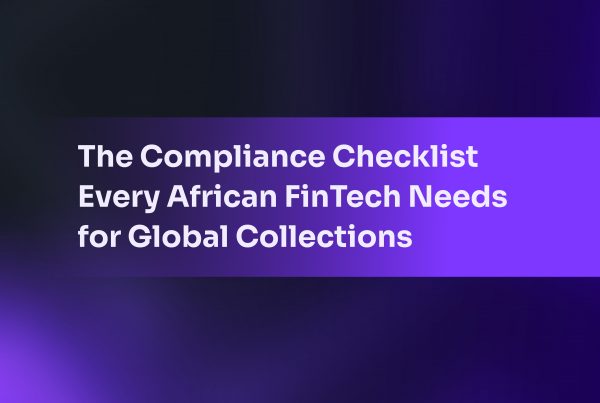Fincra has all the tools to shield your business against online fraud.
As online shopping and payment continue to increase yearly, so have fraudulent activities soared. On this side of the world, fraud is plaguing fintechs and online businesses.
Zambian fintech Union54 cut off a slew of other fintechs from its Virtual dollar card service due to the high fraud rate. Barter by Flutterwave and Busha, both from Nigeria, PayDay (Rwanda) and Eversend (Uganda) all had to suspend their virtual dollar card services.
Newly licensed Mobile Money Payment Service Bank (MoMo PSB), the fintech arm of telecommunications giant MTN, suffered N22B fraud cases in less than a month of operations in another example of how fintechs are battling fraud. A report estimates that mobile-payment fraud is worth about $4b annually, with Kenya and South Africa the most hit as Africa remains vulnerable to online fraud amidst the boom in digital payments.
To further explore the issue of online fraud, fintech giant Stripe recently released a report which offers a comprehensive overview of the state of online fraud. The report analysed data from 2019 to 2022, and although it didn’t explore African businesses, it has lessons that can help fintechs in this region fight this scourge.
These are five things we learned from the report.
1. Why fraud has increased
The growth of e-commerce and online shopping due to the Covid-19 pandemic is a trend that is consistent worldwide. African e-commerce giant Jumia reported a record rise in transactions in 2020 during the pandemic, while fintech Paystack in 2021 reported a five-fold increase in transactions compared to pre-pandemic times.
These instances all point to a boom in online shopping in Africa, a phenomenon that led to an increase in fraud, that is according to Stripe’s report. Online fraud increased as more people shopped online, and businesses adopted the e-commerce strategy to serve their needs.
The report pointed out that these new businesses that adopted an online marketplace strategy lacked the tools and resources to deal with fraud. This challenge caused an increase in online fraud. Big companies are also not left out as they found it more challenging with more complex types of fraud and a higher volume of fraud compared to pre-pandemic times.
2. Types of prevalent fraud
The report found an increase in online fraud through chargebacks and attempted card testing
Chargebacks
Remember the Union54 issue mentioned earlier; the fintech suspended its virtual dollar card services due to a high rate of chargeback fraud. Chargeback fraud is when a customer fraudulently tries to secure a refund using the chargeback process. According to Investopedia, a chargeback is a charge returned to a payment card after a customer successfully disputes an item on their account statement or transactions report. A chargeback may occur on debit cards (and the underlying bank account) or credit cards.
For chargeback frauds, these customers falsely claim to have a sort of issue with the product and ask for a refund. In the case of Union54, the fintech would charge back the amount of the disputed transaction to the business, returning the money to the cardholder without the business’s approval. International merchants like Facebook, Google and AliExpress have been contesting these chargeback claims and demanding that the issuing bank (Union54) reverse the chargeback.
Attempted card testing
Card testing is also called card cracking; Card testing is when fraudsters steal a card and make a small purchase to check if the card is working. If successful at that attempt, the fraudsters then make larger purchases. Card testing is not rife in Africa but one to watch out for.
3. Best practices
The report has some suggestions on the best practices to combat online fraud. For chargeback frauds, it recommends having a clear return policy which is transparent and reasonable. The report suggests starting the return window when the customer receives the product, not when the business ships the product. Another recommendation is to establish a formal dispute process, notifying customers before processing their payments and requiring a customer’s signature when the delivery arrives.
For card testing attacks, the report recommends optimising integration with payment providers, keeping API keys safe, enabling CAPTCHA in the checkout flow, setting rate limits to control the amount of incoming and outgoing traffic and requiring customers to log in to their account before making payments.
4. Offer a subscription for your products
Loss of revenue first comes to mind when it comes to the business impact of fraud, but the report highlights that it goes beyond that. Businesses suffer the loss of resources by diverting resources to manage fraud. The business suffers because it shifts resources away from its core product.
The report also states that businesses block legitimate charges in their attempt to prevent fraud which causes false declines. False declines can lead to loss of customers. The report states that 33% of customers said they wouldn’t return to a business after a false decline. That’s a lot!
The report recommends using a third-party guarantee solution for small businesses that cannot afford a dedicated fraud team. Big firms can adopt technology like Machine Learning to fight fraud.
5. You need Fincra
Partnering with the right payment partner is always a win for any business against online fraud. Fincra has all the tools to shield your business against online fraud. Our effective chargeback management system on the merchant’s dashboard makes it easy for businesses to manage claims.
Fincra has world-class security and encryption to protect all data from any form of fraud. We establish and adhere to AML/CFT policies and have an in-house compliance team that conducts periodic audits and consistently implements industry security benchmarks.
Fincra is also PCI DSS Compliant and has satisfied the highest standard of Security Audit as a payment gateway processor.




